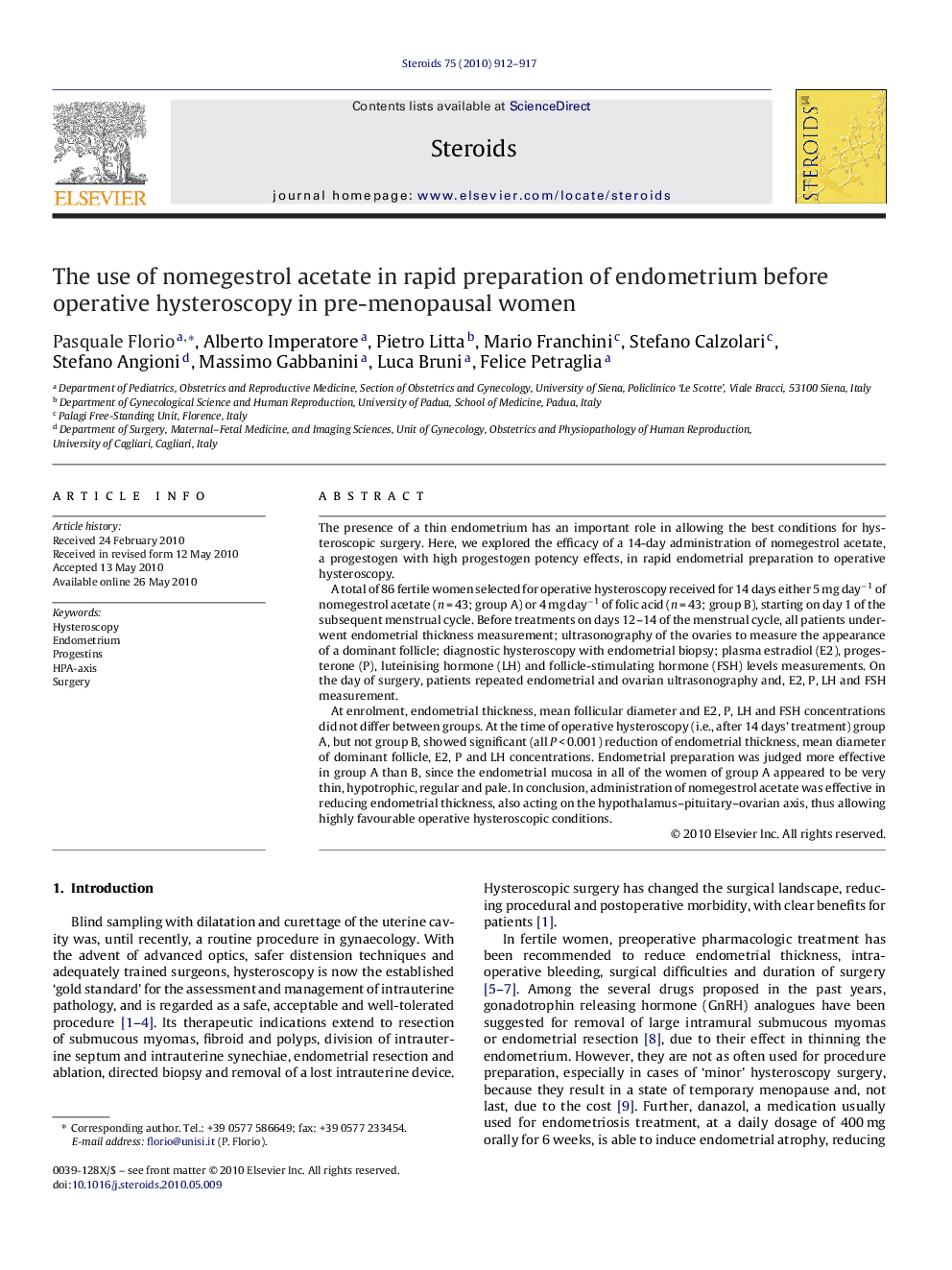| Article ID | Journal | Published Year | Pages | File Type |
|---|---|---|---|---|
| 2028153 | Steroids | 2010 | 6 Pages |
The presence of a thin endometrium has an important role in allowing the best conditions for hysteroscopic surgery. Here, we explored the efficacy of a 14-day administration of nomegestrol acetate, a progestogen with high progestogen potency effects, in rapid endometrial preparation to operative hysteroscopy.A total of 86 fertile women selected for operative hysteroscopy received for 14 days either 5 mg day−1 of nomegestrol acetate (n = 43; group A) or 4 mg day−1 of folic acid (n = 43; group B), starting on day 1 of the subsequent menstrual cycle. Before treatments on days 12–14 of the menstrual cycle, all patients underwent endometrial thickness measurement; ultrasonography of the ovaries to measure the appearance of a dominant follicle; diagnostic hysteroscopy with endometrial biopsy; plasma estradiol (E2), progesterone (P), luteinising hormone (LH) and follicle-stimulating hormone (FSH) levels measurements. On the day of surgery, patients repeated endometrial and ovarian ultrasonography and, E2, P, LH and FSH measurement.At enrolment, endometrial thickness, mean follicular diameter and E2, P, LH and FSH concentrations did not differ between groups. At the time of operative hysteroscopy (i.e., after 14 days’ treatment) group A, but not group B, showed significant (all P < 0.001) reduction of endometrial thickness, mean diameter of dominant follicle, E2, P and LH concentrations. Endometrial preparation was judged more effective in group A than B, since the endometrial mucosa in all of the women of group A appeared to be very thin, hypotrophic, regular and pale. In conclusion, administration of nomegestrol acetate was effective in reducing endometrial thickness, also acting on the hypothalamus–pituitary–ovarian axis, thus allowing highly favourable operative hysteroscopic conditions.
